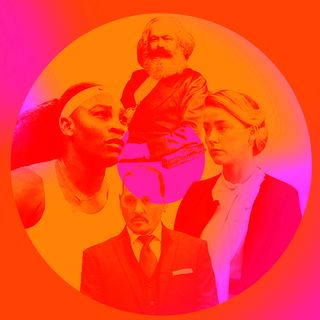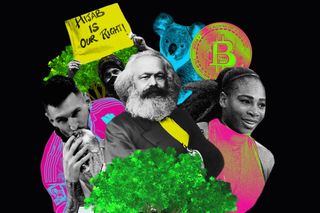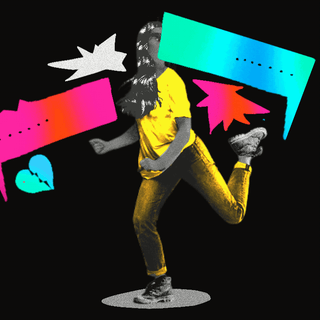
The Conversations That Inspired Passion This Year
The year’s biggest cultural shifts in politics, environment, society, and work.

We look back on 2022, and what we were passionate about.
2022 was a year where we got to find out who we were after going through collective trauma. There were many events that shook the world — the unravelling of #MeToo, the Russian war on Ukraine, the Pakistan floods, and the undermining of reproductive rights in the United States. We’ve reported each of these in kind, and grappled with shifts for the worse extensively. Here, we look back on some of the more hopeful developments in the year that don’t quite balance out the bad, but leave us with something to hold on to for the battles to come.
ANS: Earlier this year, Ecuador became the first country to grant legal personhood to individual wild animals, recognizing their innate value, independent of their worth to humans. This development gave impetus to the “rights of nature” debate, which is something Ecuador had already recognized and enshrined at the constitutional level, back in 2008.
In the context of a world ravaged by the climate crisis, where ecosystems are on the brink of collapse and we are living through the sixth (some say, seventh) mass extinction of species, Ecuador’s decision paves the way to correct the anthropocentric attitude that views nature and everything it encompasses as a resource to be extracted. It spells hope for nurturing a practice of empathetic coexistence that values the knowledge and experiences of indigenous communities. Upholding the rights of natural entities becomes an important step towards placing environmental justice at the forefront as we reframe our relationship with our environment.
RN: My favorite thing about the year was seeing anti capitalist discourse become officially cool. Thanks, GenZ! Although the cynic in me wants to believe that it’s not enough (and capitalism itself is appropriating it), the results of elections across Latin American countries this year gave me pause. The post-pandemic year was one of limbo. Who have we become on the other side of this unimaginable crisis? We saw inequality grow, social security plummet, democracies undermined – but this gave way to growing anger, passion, and political courage to resist the systems that have crushed us. Both online and offline – and I have a sliver of hope again.
I’ve also been passionately displeased about blockchain bros. It’s a phenomenon that took over the internet for a time: even as internet researchers and ethicists flagged that there were no use cases for blockchain that could change the world for the better, this was a faction of the internet that vehemently insisted otherwise. It was a scam of epic proportions waiting to fall apart – and when it did, it was glorious. Crypto giant FTX went bankrupt, somehow taking Tom Brady down with them in the process too. Celebrity crypto grifters were caught in the act, and all seems (for now) to be right with the world of finance again. Except, of course, for everything else pertaining to how we use, exchange, and distribute money.
ASR: What stood out the most for me this year, and what defined passion in ways more than one, were the two sets of protests by fierce Muslim women in two different Asian countries. On surface, the protests by Muslim students in Karnataka for their right to wear the Hijab to their college, and the protests by Iranian women for their right to forgo the compulsion of wearing a headscarf, can not seem more disconnected from each other. However, the two protests actually signify the same spirit: of refusing to let the state dictate women’s clothing choices and religiosity for them. Both the protests highlighted the value of freedom of choice in people’s individual lives.
The last quarter of the year also witnessed two great sporting events, which millions around the world followed with great passion. Both the T20 Cricket World Cup and FIFA World saw multiple instances of underdogs surprising fan favorites, underlining great fighting spirit – the one thing sport truly stands for. In the football world cup, particularly, the national team of Morocco wowed the world with a dream run, becoming the first North African team to make it to the semi finals of the tournament. The World Cups also saw rewarding performances from modern greats of both the sports. For cricket fans, it marked the return of Virat Kohli to form, while those following football had the chance to see Lionel Messi finally lift the Jules Rimet trophy.
DR: The fabled model of a four-day work week is closer to being a reality now than it ever was before. The fact that many organizations that tried out this model, have now decided to adopt it permanently, shows a willingness on part of employers to open their minds to the idea that overworking their employees isn’t the only means to ensure high rates of productivity. The success of the model – in terms of employees’ wellbeing and productivity, both – is proof that it’s possible to achieve success without sacrificing one’s mental health. The four-day work week is, perhaps, the most tangible consequence of the pandemic-triggered reassessment of our collective priorities, but it’s certainly not the only one. The growing prevalence of the hybrid work model, too, speaks to the evolution of work culture, globally, as a result of greater awareness and acknowledgement of mental health.
It’s not only corporations that have undergone an overhaul, though – even sportspersons and celebrities, like Serena Williams and Justin Bieber, are setting precedents for prioritizing mental health at work. Perhaps, it’s simply a matter of push coming to shove that triggered this – after all, the mental health impact of the pandemic has been colossal. Nonetheless, the growing acceptance of four-day work week and hybrid culture models in different parts of the world, marks a paradigm shift in work culture that had, until now, glorified hustle culture above all else.
Related


Can Passion for Work Exist Without Struggles, Challenges?
